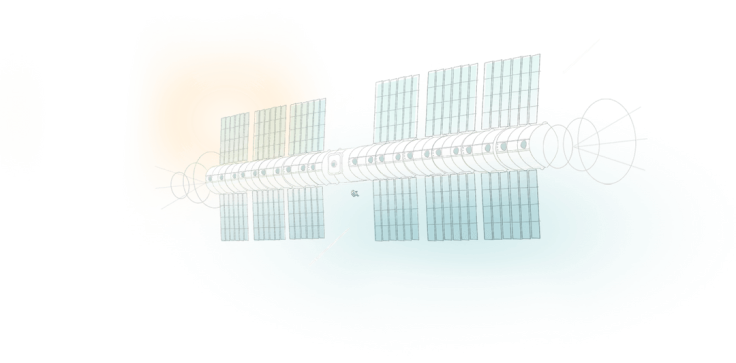Astronauts floating in space stations might be a thing of the past in the foreseeable future.
Space habitation technologies startup Vast Space has recently announced its official launch along with its intention to establish space stations capable of generating artificial gravity in low-Earth orbit.
Jed McCaleb, a tech visionary and cryptocurrency billionaire, founded the company in 2021, with him being the sole owner of the company as of the writing of this article, per Space News.
Vast Space Artificial Gravity Space Station Details

Vast Space mentioned in its announcement that it is developing space stations capable of generating artificial gravity to enable "scalable solutions" for humans to live and be productive in space.
According to McCaleb, its mission is to enable a future wherein people are living across the solar system while preserving Earth's resources in the process.
He mentioned that the solar system has more than enough resources in terms of energy and matter to support many "Earths." By accessing those resources with the industry and infrastructure needed to access them at scale, humanity could grow and thrive in space while preserving Earth's finite resources, allowing large populations to live there.
McCaleb believes that the next step for humanity after innovating ways to launch astronauts into space is habitation. He believes that current innovations in the launch industry have lowered the cost-to-orbit ratio, thus making larger structures and the dream of living off-planet a possibility in the future.
As such, it is necessary for humanity to create ways to generate artificial gravity, which will allow people to remain fit and healthy.
According to a NASA report, prolonged exposure to zero-gravity will result in bone loss, muscle mass, and damage to the drain and eyes due to the fluids in the human body shifting upwards to the head. People in zero gravity are also at a higher risk of developing kidney stones from dehydration and the increase of calcium excretion by the bones.
Artificial gravity will solve these problems as it can counteract the physiological effects of zero gravity while people are in space.
"We still crave new frontiers, with many of us spending our lives anticipating the time when space will be unlocked for us," McCaleb said. "By pushing our frontiers and expanding our habitat into the vastness of space, we may actually preserve Earth for thousands of years and generations to come."
How Will Vast Space Take On The Challenge?
Although McCaleb plans to self-finance Vast Space's work, he intends to take the company public to get outside investment. For now, however, McCaleb wants to "focus on the mission and not become beholden to investors."
To focus on Vast Space's work, McCaleb needs to build an engineering team capable enough to attack any problem. The team's quality is of the utmost importance to the company as it will live or die on its quality.
Currently, the company is only 20 people strong and is industry-seasoned with "broad experience designing and building the most advanced vehicles in the world."
Among them are Kyle Dedmon, Tom Hayford, and Molly McCormick, all of whom are former employees of SpaceX. Dedmon was SpaceX's vice president for construction and facilities, while McCormick was once the company's human factors engineer. Hayford also worked for SpaceX as a systems engineer, but he also worked for Relativity Space for some time.









